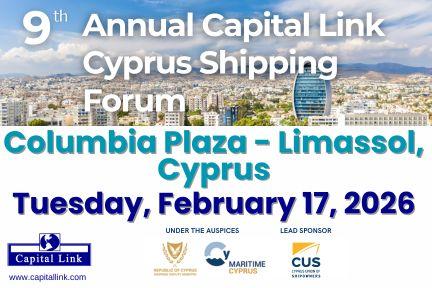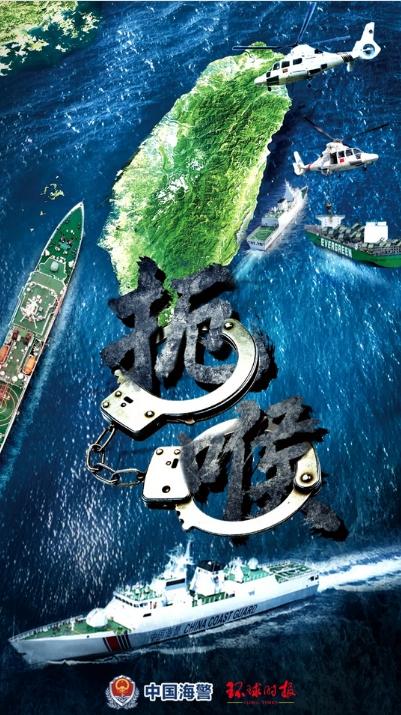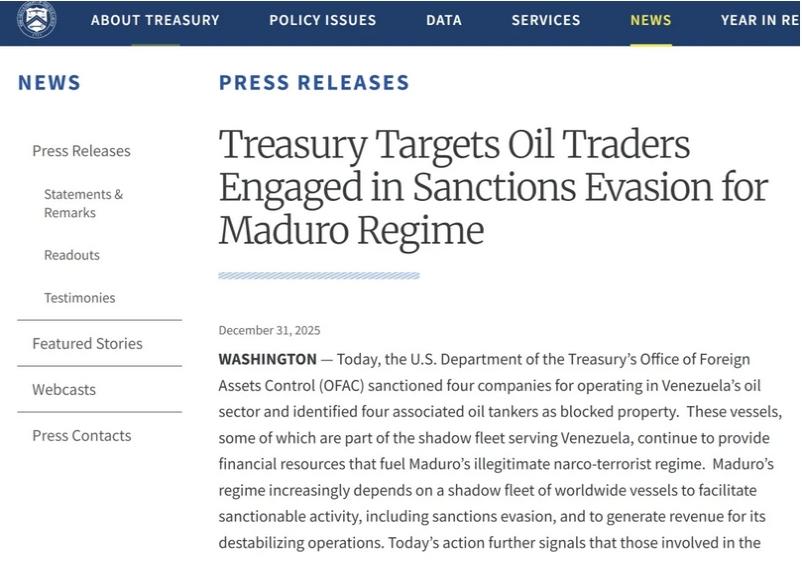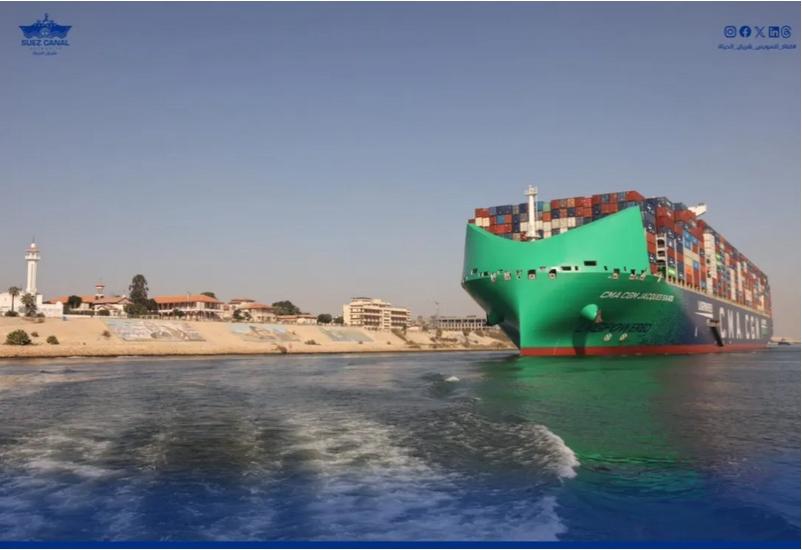
Charter-party (Voyage) - Demurrage -Commencement of laytime – Complete loading – Vessel was unable to leave berthbecause of bridge and lock were damaged-Whether owners entitled to reply onwords “always afloat always accessible” to claim damage.
在航运实务中,鉴于当事人不同的意图,因此可能签订各种各样的合同条款。而合同条款的谈判,则如战场,是你争我夺寸土必争的较量;合同谈判与公平性无关,因此市场上也就有了那么霸王条款。
如Sumption勋爵所说的,法官的常识概念倾向于公平理念,但是公平和商业合同无关。双方本着竞争合作的精神,都是为了维护自己的利益。商业可能是最不公平和完全不合理的,如果他们可以承受。通过商业合理性的衡量标准衡量他们的意图的问题是,在实践中,将法官从合同的解释者转变为调停人。一方可以借助这种方式来扭转已经证明是不利的交易。这个问题已经不再是双方约定的是什么,而是如果当事人他们是客观的,公正和公道的人,实际上他们并不是。
But fairness has nothing todo with commercial contracts. The parties enter into them in a spirit of competitive co-operation, with a view to serving their own interest. Commercial parties can be most unfair and entirely unreasonable, if they can get away with it. The problem about measuring their intentions by a yard stick of commercial common sense is that in practise it transforms the judge from aninterpreter into a kind of amiable compositeur.It becomes a means of saving one party from what has turned out to be a bad bargain. The question is no longer what the parties agreed. It is: what would they have agreed if they were the objective, just and fair-minded people that in practice they are not.
近期碰到一关于装卸港的条款,其描述如下:
LOAD PORT/装港:
1SB,1SP Abbot Point,
ABBOT POINT港,始终保持浮泊和始终保持可接近。
OWNER SHOULD SATISFY THEMSELVES ALL RESTRICTION (IF ANY) AT LOADPORT.
船东应自行适应装港的一切限制(如果存在)。
DISCH PORT/卸港:
1SB,1SP Xiamen port or Xiamen port+xinsha in guangdong,
厦门港或者厦门和新沙,始终保持浮泊和始终保持可接近。
OWNER SHOULD SATISFY THEMSELVES ALL RESTRICTION (IF ANY) AT DISPORT.
船东应自行适应卸港的一切限制(如果存在)。
首先,该条款的前部分承租人作出了装卸港的港口安全保证,以及始终漂浮和始终可达。后部分转而要求出租人自行去查核装卸港的一切限制,如果有的话。很显然,条款的前后部分有冲突,而且是完全相反的解释。前部分承租人承担港口安全的责任及保证船舶能始终漂浮及始终可达,但后半部分却转嫁责任到出租人身上。尤其是对于有吃水限制的港口而言,出租人得自己去查核并根据相应的吃水限制来配载。
之前文章提到,如果相对于航次而言等待时间过长或者是无论如何,都需要减载才能进港的话,则这个港口对于该船而言是不安全的。同时出租人可以索赔减载费用,可参Hall v Paul(1914) 19 Com.Cas.384案。如果因为承租人安排的泊位或航道或港口的吃水受限,必须得减载才能靠泊,那么承租人将违反了港口泊位安全的保证,出租人可以找承租人索赔损失。
对于这方面的法律依据可以参《Time Charter》Chapter 10-Safe ports and safe berths 10.24 & 10.63
10.24 It has also been held that a port is unsafe if, in order to enter it, the ship must lighten some of her cargo.
The Peerless was employed under a voyage charter which required thatshe should discharge at a safe port.
She was ordered to discharge at King’s Lynn but her draft was too great to allow her toenter on any tide with her full cargo of maize. Sankey, J., held that the portwas unsafe for her and that the owners were entitled to recover the cost of lighters.
Hallv. Paul (1914) 19 Com. Cas. 384.
(See also The Alhambra (1881)6 P.D. 68.)
10.63 If the owners or their master do take reasonable action to avoid or mitigate the effects of any unsafety of the port, they may claim from the charterers the cost of so doing: for example, the cost of tugs in Brostrom v. Dreyfus (1932) 44 Ll.L.Rep. 136, and the cost of lightening in Hall v. Paul (1914) 19 Com. Cas. 384 and paragraph 10.24, above.
与之前文章所说的“reachable on arrival”类似,接下来就来看看 The “Aconcagua Bay”[2018]EWHC 654(Comm)案中对“Alwaysaccessible”的最新解释。
一、基本案情
Seatrade Group N.V.(以下简称“出租人”)以修改过的Gencon94的租约范本,将The “Aconcagua Bay” (以下简称“该轮”)租给Hakan Agro D.M.C.C(以下简称“承租人”),执行从美湾装货到干果和安哥拉卸的航次任务。
当该轮装完货的时候,由于桥梁的损坏,导致了航道不可用,该轮只能继续呆在泊位上;前后总共造成了14天的延误。
出租人于是找承租人索赔由于桥梁及船闸的损坏造成的滞留期间的损害赔偿。
其中合同第10条规定如下:
10. Loading port or place (Cl.1)
1 good safe berth always afloat always accessible 1-2 good safe ports in the USG in Charterers' option …
二、争议的焦点问题
仲裁员认定合同第10条的保证仅仅是指船舶进入,不包括离开。因此,本案争议的法律问题在于,航程租船合同中的保证“always accessible”,是否是指船舶不仅能够进入而且还能够离开泊位。
The question of law is whether the warrantyin a voyage charterparty that a berth is "always accessible" meansthat the vessel is always able not only to enter but also to leave the berth.
三、法官判决
高等法院的Robin Knowles法官认为,适用的解释原则没有异议,在解释合同时,法院通过提及具有所有背景知识的合理人员理解他们在合同中使用该措辞的含义来确定当事人的意图;法院在文件,事实和商业背景中着重说明这些措辞的含义。
The applicable principles of interpretation were not in issue. In interpreting a contract the court is concerned to identify the intention of the parties by reference to what a reasonable person having all the background knowledge that would have been available to the parties would have understood them to be using the language in the contract to mean; the court focusses on the meaning of the words in their documentary, factual and commercial context: see Chartbrook Ltd v Persimmon Homes Ltd [2009] UKHL 38; [2009] AC 1101 at [14] per LordHoffmann; Arnold v Britton [2015] UKSC 36, [2015] AC 1619 at [14]-[23] per LordNeuberger; Rainy Sky SA v Kookmin Bank [2011] UKSC 50, [2011] 1 WLR 2900 at [14]-[30] per LordClarke; Wood v Capita Insurance Services Ltd [2017] UKSC 24, [2017] AC 1173 at [8]-[15] per LordHodge.
这些最高法院关于合同解释的权威判例,已经做详细分析,可参之前的系列文章。
Robin Knowles法官认为仲裁员裁决及法庭判决,已经解释了“always accessible”涉及船舶的抵达,并不包含离港。在伦敦11/97(1997)LMLN 463号仲裁案中发布的仲裁裁决中,“Always accessible”一词并未延伸到离开泊位。然而即使如此,正如JohnSchofield在《Laytime and Demurrage》(第7版)和《Sumerskill on Laytime》(Simon Baughen教授的第6版)中所指出的那样,仲裁并不具有决定性。
法庭审视这些教科书,发现这些有一点帮助。参Voylayrules 93,从没有提到船舶离开泊位或港口,从而得出这一推论。Robin Knowles法官认为但正如Donald Davies在他的著作《Commence of Laytime(2006)》中指出的那样,法庭在11/97的伦敦仲裁案中没有注意到波罗的海法典2003(和2007年,也见2014年)的好处,其中规定承租人承担泊位“always accessible”的责任,他另外承诺,船舶将能够安全地离开泊位,或者在装载或卸载完成期间或之后的任何时间能安全离开。另见“Laytime Definitions for Charterparties 2013”(2013年9月10日BIMCO特别通告第8号),其解释如下:
ALWAYS ACCESSIBLE the provision has been treated by the authorities as synonymous with “Reachable on Arrival” in the context ofgetting into a berth but the position on departure has been less clear. The term has therefore been set out separately with the second sentence coveringthe position on departure requiring charterers to enable the vessel to leave safely and without delay.
Always accessible的规定已经被当局视为“Reachable on Arrival”的同义词,但是在离港时的位置一直不太清楚。因此,该条款已与第二句分开列出,其中涉及离港,要求承租人使船舶能够安全而毫不拖延地离港。
Robin Knowles法官认为本案中的审判人员与11/97仲裁案的审判庭一样,也审查了英文字典的定义。在Seacrystal Shipping Ltd v. Bulk Transport Group Shipping Co Ltd(The “Kyzikos”)[1987]1 Lloyd's Rep.48中第58页判决中说到,法院审查的是抵达而非离港的情况,Webster法官认为牛津英语词典的 “access”的含义是“way or means of approach”;“accessibility”为“capable of being approached”。
然而,如果需要更广泛地选择字典,Robin Knowles法官认为那么在可用性的可用含义中将会找到能够使用或可用性的能力。这是重要的,因为“use”是一个可以很容易包括离开的词。当然,这不是确定性的,但它表明字典无法解决解释的观点。
出租人的一些依赖被放在“always accessible”一词的“always”一词上。他们的意见是,这个词表达了一种延续感。承租人的代表律师Andrew Feld先生辩称,增加这个词会引起“accessible”这个词的含义问题。Robin Knowles法官认为两份意见书都有很强的说服力。
然而,它可能在哪里(如这里)所用的全部条款是“always afloat always accessible”(有时在其他地方“始终漂浮的,始终可达的”及有时“始终可达的,始终漂浮的”),关于连续性识别点并不容易。“始终漂浮”指的是(如承租人所接受的)在该期间的靠泊或在泊位期间。“始终可达”是指至少进入该泊位。那么问题是当事人各方是否真的打算省略离开泊位的情况。
However itis perhaps where (as here) the full term used is "always afloat always accessible" (sometimes elsewhere "always afloat, always accessible" and sometimes "always accessible, always afloat"),that it is a little easier to recognise the point about continuity."Always afloat" refers (as the Charterers accepted) to the duration of the period alongside or in berth. "Always accessible" refers atleast to entry into that berth. So the question is then whether the partiesreally intended to omit departure from berth.
承租人辩称,重要的是要记住,特定的背景是程租租船的情况。泊位是指定的目的地,租船人知道将用于一艘船,一次,并为一个目的(装载或卸载)。承租人辩称认为,“alwaysaccessible”这个措辞在保证中与承租人对出租人的要求有关,即船舶应该在何处以及应该做什么。
承租人的论点仍然存在,各方意图的风险分配不应该假定为与出发时相同。装货航行阶段由装载作业阶段继承,需要出租人独自行动(参见EL Oldendorff&Co GmbH v Tradax Export SA(Johanna Oldendorff)[1974] AC 479 案, Diplock勋爵在556E所说)。 除非双方另有规定,延迟的风险将落在出租人身上。承租人辩称,不应假定一旦船舶进入泊位,装载航行阶段在离港后开始,(该阶段也要求出租人单独行动)改变风险分配。
The risk allocation that the parties intendshould not be assumed to be the same for entry as for departure, theCharterers' argument continues. The loading voyage stage of the adventure, tobe succeeded by the stage that is the loading operation, calls for acts of performance by the Owners alone (see EL Oldendorff & Co GmbH v TradaxExport SA (The Johanna Oldendorff) [1974] AC 479 at 556E per Lord Diplock). The risk of delay would fall on the Owners, unless the parties have otherwise provided. It should not be assumed, argue the Charterers, that once the vessel has entered the berth its departure on the carrying voyage stage (a stage also calling for acts of performance by the Owners alone) alters the risk allocation.
Robin Knowles法官认为这些观点突出显示,但不认为答案,这是重点。当事人各方是否打算在他们使用的措辞中包含离港?如果商业当事人已经解决了泊位的无障碍可达的问题,那么就没有理由得出结论,认为它们应该被视为单独处理进入的问题。Robin Knowles法官认为重要的是在他看来,首席仲裁员并没有为此提供答案。出租人的代表律师Nevil Phillips先生和Ben Gardner先生所提交的文件显示,合理的商业当事人考虑到停泊问题将考虑到所有方面并且不局限于进入泊位,Robin Knowles法官认为这在他看来是决定性的。
These points highlight, but do not I think answer, the point that is central. Did the parties intend to provide for departure in the wording they used? Where commercial parties have addressed the question of the accessibility of a berth,I can see no basis for a conclusion that they should be taken to have addressed entry alone. Importantly in my view the Umpire did not provide an answer tothis. The submission by Mr Nevil Phillips and Mr Ben Gardner for the Owners that the reasonable commercial party looking at the subject of berthing would bear all aspects in mind and not confine itself to getting into the berth, is to my mind decisive.
Robin Knowles法官他同意伦敦11/97仲裁案可能在此裁决后20年内影响了一些商业判决。如果该措辞的含义已经解决了,Robin Knowles法官他应该谨慎地搅扰。如承租人所主张的,当风险分配在作赌注时,商务人员可以慎重选择措辞。然而,在评论中提到11/97伦敦仲裁案时该案并不总是没有问题。Robin Knowles法官认为问题依然存在,就像在这里,首席仲裁员是否在法律上是正确的。Robin Knowles法官认为以他尊重的观点,他并不正确。
I accept that LondonArbitration 11/97 may have informed some commercial decisions in the 20 years since that award. I should be cautious to disturb a meaning if it had become settled. As the Charterers submit, business people can be taken to choose wordscarefully when risk allocation is at stake. However London Arbitration 11/97 has not always been free from question when commentaries refer to it. The issue remains whether, ashere, the Umpire was correct in law. In my respectful view he was not.
Robin Knowles法官认为“reachable onarrival”一词可以在一些租船合同中找到(特别是2012年10月1日伦敦第5/12号伦敦仲裁案中的油轮租船合同)。出租人提出,这显然适用于抵达。Robin Knowles法官认为还有一个观点,即有一个有用的词汇供各方选择,即 “always accessible”适用于离港和进入,以及“reachable onarrival”适用于单独进入。
Robin Knowles法官认为许多教科书将这两个措辞视为同义词(就像他在上述Kyzikos案中Webster法官所作的判决一样也是如此)或者同样的效果。不过,尊重地认为,更准确地说,在考虑抵达时这些条款的效果是相同的。因此,在5/12伦敦仲裁案中,法庭如是解释“[b]oth these provisions provided that the vessel in question would be able to proceed directly to the designated loading (or discharging) berth either on arrival or … at the opening of the laycan spread”。
Robin Knowles法官感激在这个上诉双方准备充分的意见书。
The term " reachable on arrival" is to be found ins ome charterparties (particularly tanker charters according to London Arbitration 5/12 in LMLN 1 Oct 2012). The Owners submit that this self-evidently applies to arrival only. I am left with the perspective that there is a useful vocabulary from which parties can choose, if "always accessible" applies to departure as well as entry and if " reachable on arrival" applies to entry alone.
I appreciate that a number of textbooks treat the two terms as synonymous (as did Webster J for the purposes of his judgmentin The Kyzikos (above)) or as to much the same effect. However I respectfully consider that the position is more precisely that the terms are to the same effect when arrival is considered. Thus, as it was put in London Arbitration 5/12 "[b]oth these provisions provided that the vessel in question would be able to proceed directly to the designated loading (or discharging) berth either on arrival or… at the opening of the laycan spread".
I am grateful for the well prepared submissionson both sides of the argument on this appeal.
总结:
在本案中,高等法院的Robin Knowles法官在对先例的分析后,认同出租人代表律师的主张。当事人各方是否打算在他们使用的措辞中包含离港?如果商业当事人已经解决了泊位的无障碍可达的问题,那么就没有理由得出结论,认为它们应该被视为单独处理进入的问题。Robin Knowles法官认为重要的是在他看来,首席仲裁员并没有为此提供答案。出租人的代表律师Nevil Phillips先生和Ben Gardner先生所提交的文件显示,合理的商业当事人考虑到停泊问题将考虑到所有方面并且不局限于进入泊位。
同时参见“Laytime Definitions for Charterparties 2013”(2013年9月10日BIMCO特别通告第8号),其解释如下:
ALWAYS ACCESSIBLE the provision has been treated by the authorities as synonymous with “Reachable on Arrival” in the context of getting into a berth but the position on departure has been less clear. The term has therefore been set out separately with the second sentence covering the position on departure requiring charterers to enable the vessel to leave safely and without delay.
Always accessible的规定已经被当局视为“Reachableon Arrival”的同义词,但是在离港时的位置一直不太清楚。因此,该条款已与第二句分开列出,其中涉及离港,要求承租人使船舶能够安全而毫不拖延地离港。
最终判首席仲裁员的裁决,Always Accessible仅仅指进港而不包括离港的裁决有误。
在本案中提到的The“Kyzikos”[1987] 1 Lloyd’s Rep.48案中,涉及的是因为大雾所导致的延误。租约是金康版本,其中卸港的描述如下:
Discharging port or place (Cl 1)
1/2 safe always afloat, always accessible berth(s) each port - 1/2 safe port(s) U.S. GULF excluded Brownsville and noport North of Baton Rouge.
Webster法官在58-59页判决书中说到:“到达”是一种方法或手段(较短的牛津英语词典),因此,“可到达”一词因此必须意味着“能够接近”,意思是拥有无障碍的方式或途径。“始终可达”这个表述是一个形容词描述,描述了泊位。表面上看,这并不是说明影响泊位的任何情况,除了它具有无障碍的方式或方法; 更不用说它是接近泊位的任何船舶的描述。特别是,这并不意味着泊位可以进入,船舶必须能够靠近泊位。这意味着只有在我已经使用这些词语的意义上能够接近泊位。
An"access" is a way or means of approach (shorter Oxford English Dictionary), and the word"accessible" must therefore mean "capable of being approached", in the sense of having an unobstructed way or means of approach. The expression "always accessible" is an adjectival description, descriptive of the berth. It is not, prima facie, a description of any circumstance affecting the berth, other than that it has an unobstructed way or means of approach; still less is it a description of any vessel approaching the berth. In particular, it does not mean that for the berth to be accessible the vessel must be capable of approaching the berth. It means only that the berth is capable of being approached in the sense in which I have used those words.
Webster法官认为如果“始终可达”这一表达具有这种含义,那么随之而来的是,如果有物理阻碍进入泊位的方法,那么泊位就无法到达,因为它没有通畅的途径或方法。另一方面,由于有雾或其他天气条件,船舶无法安全靠近泊位的事实并不意味着泊位不能不可抵达,只要这些条件不会妨碍-例如缺乏水,泊位或接近泊位的途径。
If the expression "always accessible" has that meaning, then it would follow that, if there is something physically obstructing the approach to the berth, the berth is not accessible because it does not have an unobstructed way or means of approach. On the other hand, the fact that the vessel cannot safely approach the berth, because of fog or other weather conditions, does not mean that the berth is not accessible provided that those conditions do not have the effectof obstructing - for instance, by lack of water - the berth or the approach to it.
Webster法官认为如果这个结论是正确的,那么本案中的出租人就不能确定承租人违反其提出始终可达的泊位的绝对义务。然而,仅仅关注这些词语的明显含义是不够的。在给予他们明确的意义之前,就本案而言,有必要考虑两个问题:第一,在这种情况下,这种明显的意义是否与一般原则相冲突;其次,它是否会与租船合同的其他条款发生冲突?
If this conclusion is correct, then the owners in the present case could not establish a breach by the charterers of their absolute obligation to nominate a berth which was always accessible. It is not enough, however, to have regard merely to the apparent meaning of those words. Before giving to them their apparent meaning, for the purposes of this case, it is necessary to consider two questions: first, would that apparent meaning, in this context, conflict with general principles; and, secondly,would it conflict with other terms of the charter-party.
就一般原则而言,Summerskill在标题为“BadWeather Before Laytime Begins”中说到:
在装卸时间开始之前,船舶可能仍在前往装货或卸货的目的地的路上,在这种情况下,恶劣天气可能不会影响装卸时间计算。如果船舶在海上延误,则任何时间损失均由出租人承担。如果因为恶劣天气而被推迟到达合同目的地之前,无论是泊位,港口还是其他地方,承租人都不承担责任,因为他们没有造成延误。
Before laytime has begun the ship may still be on her way to her destination in order to load or discharge, in which case bad weather can have no effect on the laytime calculations. If the ship is delayed at sea, any loss of time is for the account of the ship owners. If she is delayed by bad weather immediately outside and before reaching her contractual destination, whether that be aberth, port, or other place, the charterers are not responsible since they have not caused the delay.
Webster法官认为Summerskill所说的原则似乎符合商业常识;因为虽然出租人习惯性地承担恶劣天气的风险和后果,但是以承租人参与对天气给予绝对保证的方式来解释租船合同似乎是不合理的,他们或其他任何人都都无法控制。然而,原则上,他们能够控制前往泊位的物理障碍。
最终Webster法官认为他没有理由重新考虑他的结论,即出租人无法确立承租人违反指定“始终可达”泊位的义务:相反,提到的三个问题中的每一个都倾向于在Webster法官看来,以确认该判决的正确性。
Finally,as it seems to me, the principle as stated by Summerskill seems to accord with business common sense; because, whereas ship owners habitually have to bear the risks and consequences of bad weather, it would seem unreasonable to construe a charter-party in such a way as to involve the charterers in giving an absolute warranty in respect of the weather, over which neither they nor anyone else has any vestige of control. In principle, however, they are capable of controllingphysical obstructions to the approach to a berth.
I have no reason, therefore, to reconsider my conclusion that owners could not establisha breach by charterers of their obligations to nominate a berth "always accessible": on the contrary, each of the three matters which I have mentioned tends, in my mind, to confirm the correctness of that conclusion.
在The“EvaggelosTH.”[1971]2 Lloyd’s Rep.200案中,涉及的是该油轮,按承租人指示到埃及的苏伊士,结果被炮弹射击造成全损。合同第12条描述如下:
12. The Cargo or Cargoes shall be laden and discharged in any dock or at any wharf or place the Charterers may direct, where the vessel can always lie safely afloat.
其中关于always lie safely afloat的解释,Donaldson法官在第204也判决书中说到:
奇怪的是,这句话似乎从未在任何报道的案例中被解释过。就我而言,我认为它只关心卸货地点的海洋特性,并要求船舶始终是水运的,并应能够留在那里,而不会有风,气候造成损失或损坏的风险或正在正确导航的其他船舶。因此,一个干涸的地方,或者船舶只能在晴朗的天气中停靠在锚上的地方,或者船舶可能在特定的风浪或潮汐中穿过航道的地方,都不符合该条款的要求。然而,船舶所停靠的位置并不受任何此类反对意见的影响。这与解释的许多优良点一样,都必须是一个印象,但我很高兴地发现,仲裁员是伦敦海事仲裁协会最有经验的成员之一,似乎受到同样的印象。因此,在这个主题下出租人的的索赔失败了。
Curiously enough, this phrase seems never before to have been construed in any reported case. For my part, I think that it is concerned exclusively with the marine characteristics of the discharging place, and requires that the vessel shall at all times be water-borne and shall be able to remain there without risk of lossor damage from wind, weather or other craft which are being properly navigated.Thus a place which dries out or one in which the vessel can only lie to an anchor in fair weather or one in which the vessel might in certain winds or tides lie across the fairway would not be within the requirements of the clause. The position in which the vessel lay was not however, open to any such objection.This, like so many fine points of construction, must be a matter of impression,but I am heartened to find that the arbitrators, who are among the most experienced members of the London Maritime Arbitrators Association, seem to be under the same impression. The claim under this head therefore fails
The “EvaggelosTH.”案的情况,也可以参《Voyage Charter》Chapter 5-Loading andDischarging Ports, Places and Berths 5.68,如下:
“Always lie safely afloat”
5.68 In contrast to the above, the words “always lie safely afloat” were held by Donaldson J. in The Evaggelos Th.127 to be concerned exclusively with the marine characteristics of the place of discharge, and require that the vessel should at all times be water-borne and able to remain there without risk ofloss or damage from wind, weather or other properly navigated craft. Thus,exposure to war perils involved no breach of that term.
而在《Voyage Charter》Chapter 5中5.69-5.70对 “Always accessible” or “always available” or “reachable on arrival”作了部分解释,如下:
5.69 Where a warranty is given that a place or berthbe “always accessible” or “always available” or “reachable on arrival”, this amounts to an absolute warranty by the charterer that the vessel may proceedinto the designated berth without delay and without risk immediately upon her arrival (and presumably the completion of necessary entry formalities requiredof the vessel without the involvement of the charterer), even though anyobstacle is merely temporary and easily avoided by waiting.128
5.70 It has been held by London arbitrators that the warranty that a berth is “always accessible” does not extend to a warranty thatthe berth is also “always leavable” at least when the reason for the vessel notbeing able to leave after completing loading was a normal low tide.129 Ithas also been held that there is no breach of the term where a draft restriction at the berth prevents the owner from loading the maximum cargo permitted under the charter provisions.130
这些相关问题也可参《Laytime and Demurrage》Chapter 3-Commencement of Laytime中的3.410及3.471之后的众多段落,不再此重复。其中3.493又对2013租船合同的装卸时间定义作了说明。
3.493LaytimeDefinitions for Charter Parties 2013 provides asfollows:418
reachable on arrival shall mean that the charterer undertakes that anavailable loading or discharging Berth be provided to the Vessel on arrival atthe Port which the Vessel can reach safely without delay.
This purports to correct two objections to the previous Voylayrules 1993 definition, the first of whichis that the previous definition only applied “in the absence of an abnormal occurrence”. These words have now been dropped. In respect of the second,although it refers to the vessel being able to reach an available berth without delay, a reference to an accessible berth, would have been preferable.
A separate definition of Always Accessible419has been included:
always accessible shall mean that the charterer undertakes that an available loading or discharging Berth be provided to theVessel on arrival at the Port which the Vessel can reach safely without delay.The charterer additionally undertakes that the Vessel will be able to depart safely from the Berth and without delay at any time before, during or on completion of loading ordischarging.420
These separate definitions also replace the combined definition that appeared in The Baltic Code 2007.
这里标黄色的部分,Always accessible的意思是承租人承诺可以在船舶抵达港口时向船舶提供可用的装载或卸载泊位,船舶可以立即安全抵达该港口。承租人还承诺,在装货或卸货之前,期间或之后的任何时间,船舶都能够安全地从泊位离港。
而Baltic Code2007对此的解释说明如下:
Baltic Code 2007
reachable on her arrival or always accessible – means that the charterer undertakes that an available and accessible loading or dischargingberth will be provided to the vessel on her arrival at or off the port which she can reach safely without delay proceeding normally. Where the charterer undertakes the berth will be ALWAYS ACCESSIBLE, he additionally undertakes that the vessel will be able to depart safely from the berth without delay at any time during or on completion of loading ordischarging.
Reachable on her arrival 或者Always accessible的含义,即意味着承租人承诺在船舶到达或离开她可以安全抵达的港口时,为船舶提供可用且便捷的装卸泊位。如果承租人承担泊位将始终可达到,他即另外承诺,船舶能够在装卸期间或完成装卸期间的任何时间可安全离开泊位。
结合The “Aconcagua Bay”案,Laytime Definitions for Charter Parties 2013以及Baltic Code2007对于Always accessible的解释,可以看出与之前的仲裁判例,只涉及船舶抵达的情况相反,在该措辞下,承租人还得承担船舶可安全离开的责任。
海运圈聚焦专栏作者 Alex (微信公众号 航运佬)

 2018-04-16
2018-04-16 1729
1729 














